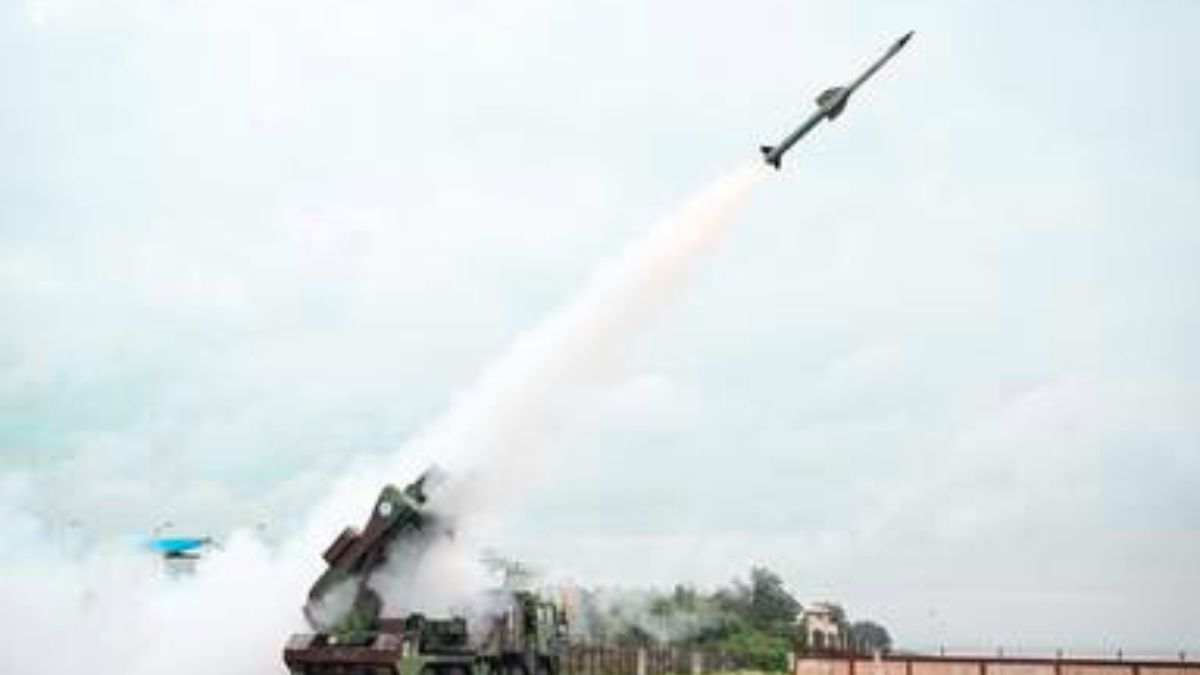India on Saturday (August 23) successfully tested its first fully integrated air defence weapon system (IADWS) off the coast of Odisha, the Defence Research and Development Organisation (DRDO) has announced. The test marks a major milestone in India’s efforts to field a layered defence shield against aerial threats.
The IADWS combines three indigenous systems: the Quick Reaction Surface-to-Air Missile (QRSAM), the Advanced Very Short Range Air Defence System (VSHORADS), and a directed-energy weapon (DEW) based on high-powered lasers. Together, these cover multiple ranges and altitudes, making the IADWS capable of engaging varied aerial threats from drones to fast-moving aircraft.
How did the test unfold?
According to DRDO, three targets were simultaneously engaged during the test at Chandipur’s Integrated Test Range:
- Two high-speed fixed-wing UAVs
- One multi-copter drone
The QRSAM, VSHORADS, and laser-based DEW each engaged their assigned targets successfully, with range instruments confirming complete destruction. DRDO scientists, armed forces representatives, and senior officials witnessed the demonstration.
A centralised command and control centre managed the integrated operation, coordinating missile launches and the DEW’s engagement in real time.
What makes this system significant?
The IADWS is India’s first attempt at fusing missile systems and a directed-energy weapon into one networked shield. By combining short and very short-range missile systems with laser interception, the system provides multi-layered coverage for critical facilities against both conventional aerial threats and emerging challenges such as swarming drones.
- The system was developed by multiple DRDO labs:
- Defence Research & Development Laboratory (DRDL) – lead for integration
- Research Centre Imarat (RCI) – developer of VSHORADS
- Centre for High Energy Systems and Sciences (CHESS) – developer of laser-based DEW
What was the official reaction?
Defence Minister Rajnath Singh congratulated DRDO, the armed forces, and industry partners, saying the tests had “established the multi-layered air defence capability of the country” and would strengthen protection of vital facilities.
DRDO Chairman Dr Samir V. Kamat also praised the teams, noting that the success underlined India’s ability to develop advanced, indigenous solutions for modern aerial threats.
